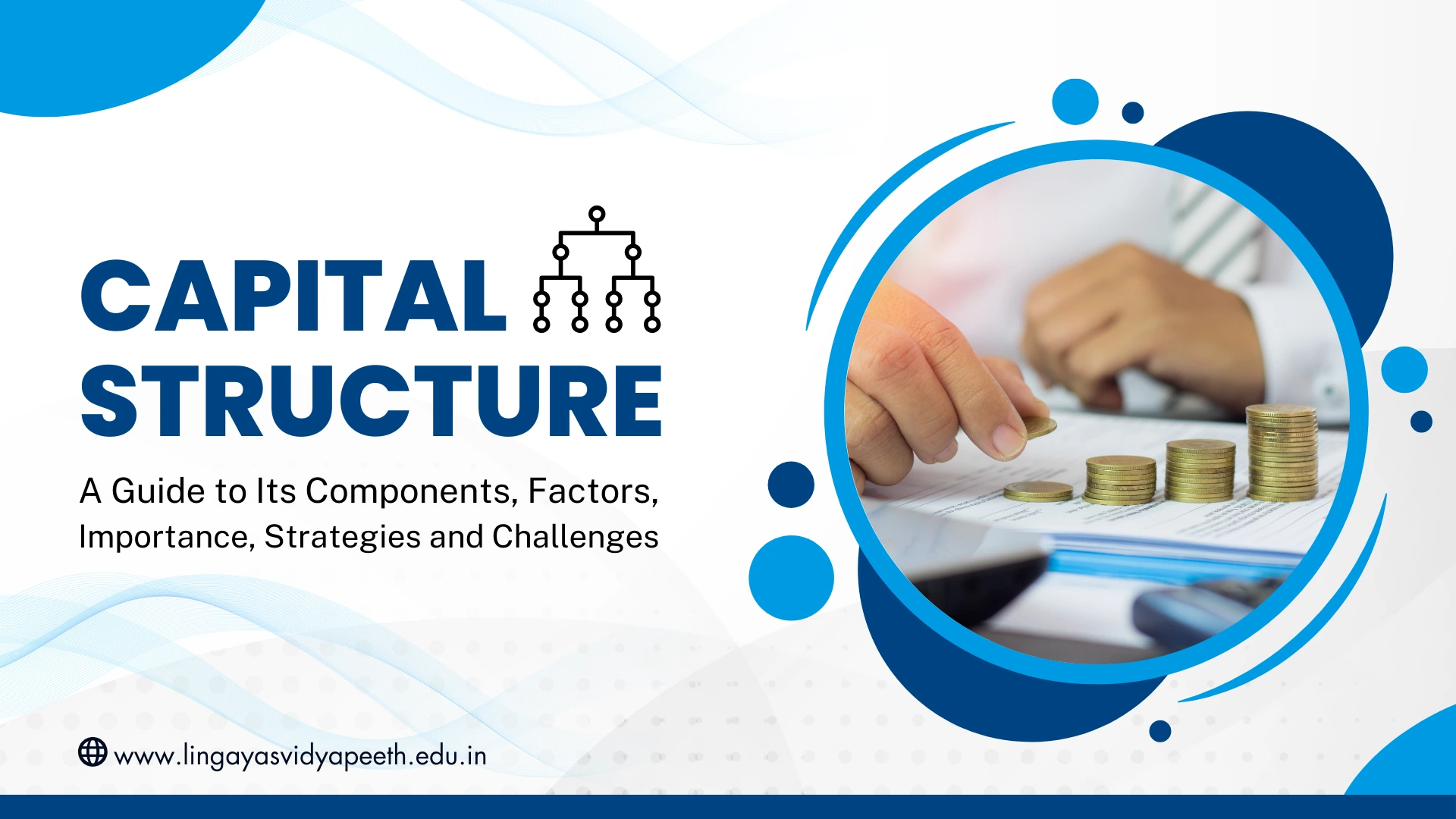Home » Capital Structure: Components, Factors, Importance and Strategies

Capital structure is a critical concept in corporate finance, representing the way a company finances its operations and growth by using different sources of funds. These sources typically include debt, equity, and hybrid instruments. The choice of capital structure directly impacts a company’s financial health, risk, and overall value. In this blog, we will explore the various facets of capital structure, its components, importance, and strategies for optimization.
Several factors influence a company’s decision regarding its capital structure, including:
Is Market Research the Key to Business Direction?
Financial Management and Investment Strategies: Empowering Young Professionals for Financial Success
Conclusion:-
Capital structure is more than just a financial framework; it’s a strategic tool that determines a company’s ability to achieve long-term sustainability and growth. By understanding the dynamics of equity, debt, and hybrid instruments, businesses can craft a capital structure that aligns with their objectives while mitigating risks. Whether you’re an entrepreneur, investor, or financial analyst, grasping the nuances of capital structure is essential for informed decision-making in the corporate world.
For those looking to deepen their knowledge in finance and capital structure, pursuing a Bachelor of Commerce (B.Com) degree from a reputed institution is a smart step. Lingaya’s Vidyapeeth, recognized as the Best B.Com college in Faridabad, offers a comprehensive curriculum and hands-on experience that prepares students for successful careers in finance, business, and management. With expert faculty and a focus on practical learning, Lingaya’s Vidyapeeth provides the ideal platform to build a strong foundation for your future career.
From
Ms. Anuradha
Assistant Professor
School of Commerce and Management
Lingaya’s Vidyapeeth
Top College in Delhi NCR for B.Com
RECENT POSTS
CATEGORIES
TAGS
Agriculture Agriculture future AI Architecture artificial intelligence BA English BA Psychology BTech CSE BTech Engineering Business management career Career-Specific Education career guide Career Opportunities career option career scope Civil engineering commerce and management Computer Science Computer science engineering Data science degree education Engineering Engineering students English Literature english program Exam tips Fashion Design Fashion design course Higher Education Journalism journalism and mass communication law Law career Machine Learning MA Psychology Master degree mathematics MBA Mechanical Engineering Pharmacy Psychology Research and Development students
University Address: Nachauli, Jasana Road, Faridabad, Haryana
Toll Free: 1800-120-4613
Mobile : 8447744303 | 8447744304 | 8447744306 | 8447744309
Address: C-72, Second Floor, Shivalik, Near Malviya Nagar,
Above HDFC Bank, New Delhi 110017
Ph.No. - 011-46570515 / 45138169 / 41755703 / +91-7303152412
Jagmani Kutir, Ground Floor, Road No-1, Rajeev Nagar,
Near Darbar Marriage Hall, Patna-800024, Bihar
Contact No: 9818352069/8130120095
Mail: [email protected]
Copyrights © 1998 - 2025 Lingaya's Vidyapeeth (Deemed To Be University). All rights reserved.
It is important to note that the following email IDs and domains are fraudulent and do not belong to our university.
LV only conducts physical/online verification of any document related to examination on the following email id: